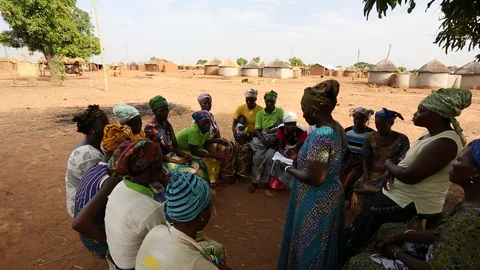
By neglecting land ownership issues and excluding women from
fair markets, this cycle will only persist. Without secure land rights, women
lack the ability to invest in long-term improvements such as soil health,
irrigation, and sustainable farming methods. This, in turn, limits their
productivity and keeps them dependent on small-scale subsistence farming.
At the same time, restricted market access means that even when women manage to
produce, they often struggle to sell their goods at fair prices. With
intermediaries controlling payments and financial institutions hesitant to
provide credit, women farmers remain trapped—unable to grow their businesses,
increase their income, or break free from economic hardship.
The result? A continuous cycle of poverty that weakens agricultural development, food security, and economic progress. Until these two critical challenges—land ownership and fair market access—are properly addressed, women farmers will continue to bear the brunt of inequality, limiting not only their potential but the prosperity of entire communities.
Why Are Women Farmers Stuck in Poverty?
🔴 Limited Land Ownership – Without secure land rights, women struggle to make long-term investments in soil health, irrigation, and sustainable farming methods. Their lack of ownership also affects their ability to access credit or financial assistance.
🔴 Exclusion from Fair Markets – Many women farmers are forced to sell through intermediaries who exploit them, taking a significant portion of their earnings. This reduces their profits and keeps them from reinvesting in their farms.
🔴 Restricted Access to Finance – Without formal land ownership or financial history, women have limited access to loans, insurance, and capital needed to expand their farming operations. This keeps them stuck in subsistence farming with little room for growth.
🔴 Limited Training and Resources – Agricultural training and extension services are often geared towards men, leaving women without the knowledge and skills to adopt modern, climate-resilient farming techniques.
Why This Matters
Women play a crucial role in food security, yet their limited access to resources reduces agricultural productivity, weakens economies, and threatens long-term sustainability. FAO research shows that closing the gender gap in agriculture could increase global food production by up to 4%, lifting millions out of poverty.
However, the challenge is too big to tackle alone. Policymakers, investors, and development organizations must step up to remove structural inequalities, implement gender-responsive policies, and ensure women farmers receive the support they need.